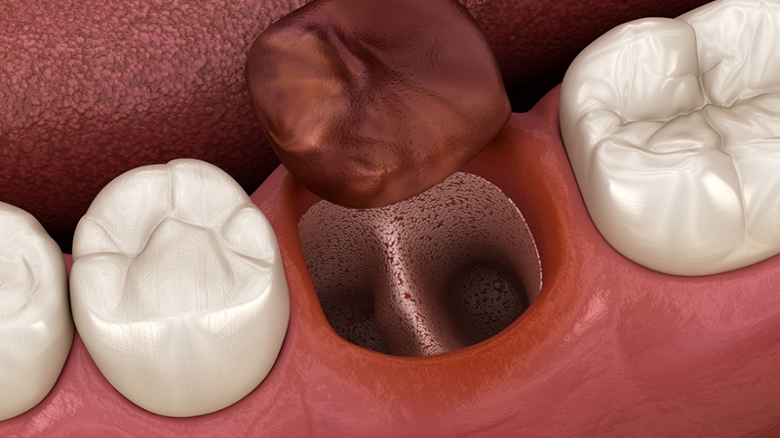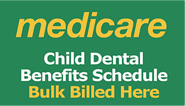- New Patient Special for $150
- Terms and Conditions Apply
- Learn More!

Around 85% of people will undergo wisdom tooth extraction at some point in their life, whilst others may need to have teeth extracted due to infection, damage or decay which is beyond repair. A small number of patients may develop dry socket (alveolar osteitis), which can be painful and may lead to poor or delayed healing. In this blog post, Central Brunswick Dental Care will be sharing some insight into this condition, along with some helpful tips for reducing your risk.
Why does Dry Socket Occur?
After a tooth extraction, blood clots begin to form at the extraction site to provide protection to the exposed bone and nerve and promote healing. A small number of people may fail to develop a blood clot, whilst others may accidentally dislodge the blood clot during routine brushing or from other functions. It is important to note that the healing process takes around 7-10 days, and during this time you will need to follow the advice of your dentist in order to avoid any complications.
It is normal to experience some pain and discomfort following a tooth extraction procedure, but if pain is severe or you notice a throbbing sensation then you should book an appointment with your dentist as soon as possible as these are common symptoms of dry socket.
Dry Socket Symptoms to Be Aware Of
People with dry socket may notice the following symptoms
Risk Factors for Dry Socket
There are several lifestyle factors which are known to increase the risk of experiencing dry socket. These include tobacco use/smoking, use of birth control, insufficient oral hygiene and the use of some types of prescription medications known to inhibit blood clotting.
The loss of blood clots can also occur as a result of trauma, whether it be a blow to the mouth or accidentally hitting the extraction site with the head of your toothbrush. Other possible causes can include vigorous rinsing and movement of the muscles around the extraction site.
Tips for Preventing Dry Socket
Oral antibiotics may be provided by your oral surgeon following tooth extraction. The following can also help lower your risk of dry socket:
Dental Treatment for Dry Socket
Only around 1 in 20 people experience dry socket, but if you suspect you may have dry socket you should book an appointment with your dentist immediately. Dry socket cannot be treated at home. Your dentist will perform a thorough clean of the wound before applying a sedative dressing to the extraction site. The area must be kept clean throughout the healing process. You may also be given a prescription for pain relief medication.
Book an Appointment at Central Brunswick Dental Care Today
If you have any concerns about your wisdom teeth, or if you’ve recently had a tooth extraction and are concerned you may be experiencing dry socket, please contact Central Brunswick Dental Centre today. Call (07) 3216 1100 or email admin@cbdentalcentre.com.au to make an appointment.






Fill in the form and our friendly team will be in touch with you monumentarily
Sed ut perspiciatis unde omnis iste natus error sit voluptatem accusantium dolor emquesit voluptatem laudantiu.
You always feel in very safe hands at this practice, and I should know as I've been a patient here for around 20 years. Everyone is relaxed and friendly but still very efficient. Despite moving out ... Read More
I have been coming to Central Brunswick Dental Care for a few years now and love their work. A trip to the dentist has never been so much fun. Jacky and Lauren are always there with a smile and they ... Read More
Going to the dentist is almost a pleasant experience. Jacky and Lauren do the best job in giving you a professional service with personal attention. It's all good except Jacky's dad jokes!
Jacky & Lauren are just wonderful & caring & they always make me laugh even though I had some pain during the procedure! Oh & Bryce is still amazing. I thoroughly recommend Central Brunswick Dental ... Read More
The Team at Central Brunswick Dental Centre are amazing. Always welcoming, and have my dental care at the centre of what they do. Highly recommended. Great team.
